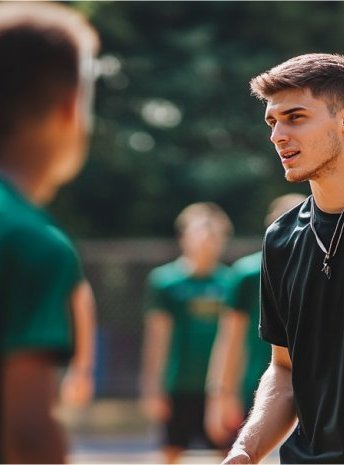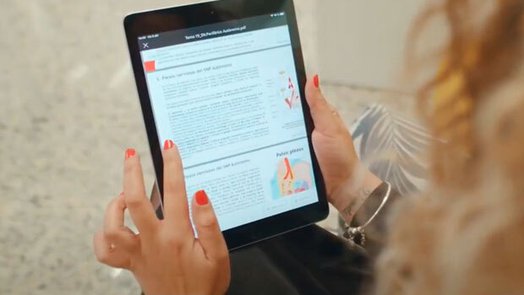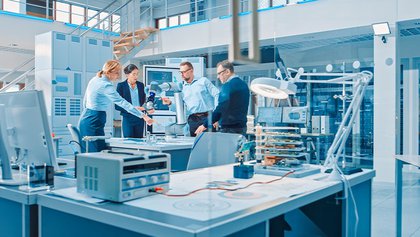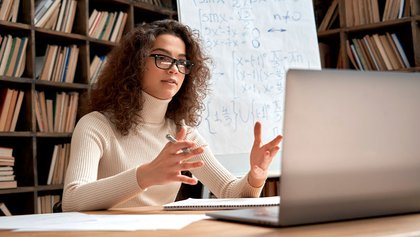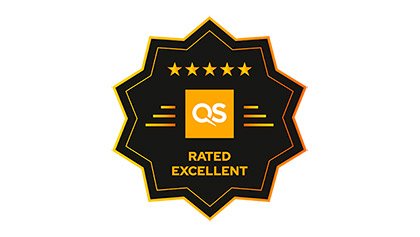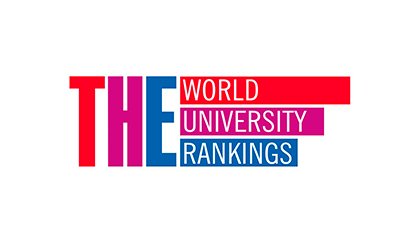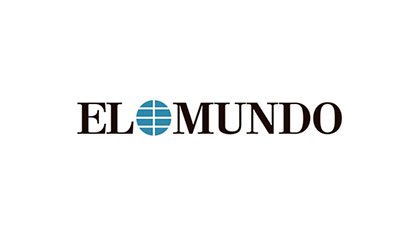-18% ¡Descuento hasta el 15 de octubre!
Course in Basketball Physical Training
The Postgraduate Diploma in Basketball Physical Training offers a comprehensive, practice-driven education designed to optimise athletic performance in basketball. Through expert-led modules, you’ll gain advanced knowledge in performance enhancement, injury prevention, strength and conditioning, and athlete profiling.
This cutting-edge programme blends evidence-based methods with the latest technology, including athlete monitoring systems, performance testing, and tailored programming. With a strong emphasis on real-world application, it equips you to assess, design, implement, and manage physical training programmes specific to basketball’s unique demands.
You’ll also develop key skills in leadership, communication, and data interpretation—crucial for thriving in high-performance environments. Whether your goal is to support elite teams or individual athletes, this diploma prepares you to excel in one of sport science’s most dynamic and competitive fields.
Private degree issued by Universidad Europea de Madrid
| Online with live classes | Classes in English | Start: 2 feb. 2026 | 4 months, 21 ECTS | Faculty of Medicine, Health and Sport |
Meet our partner: ESCCA
The content of this programme was developed alongside with ESCA, the professional organization of all the strength coaches that work in teams competing in Europe's most prestigious league, the Euroleague. They aim to share their knowledge and experience to promote the advancement of basketball strength and conditioning worldwide.
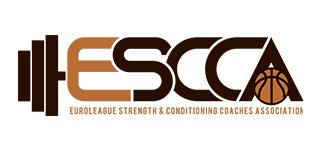
Study plan
The Postgraduate Diploma in Basketball Physical Training is a specialised programme designed to equip professionals with the tools, knowledge, and hands-on experience needed to optimise athletic performance in basketball.
Module I. Introduction and Designing Performance Enhancing Programs for Basketaball (2 ECTS)
- ESCCA goals and purposes.
- Course Objectives - Table of Contents.
- Historical course of basketball S&C coaches.
- The current role of the S&C in basketball.
- Future challenges and opportunities of the S&C Coach in basketball.
- Building the necessary skillset for a long-term successful career.
- Introduction to Complexity
- A ""new"" way of thinking about the human body and training
- What is systems thinking and how is it related to training?
- Shifting the mental model of program design
- Basketball Needs Analysis.
- The three basic questions for performance enhancing program design.
- Who are we training?
- What are the goals?
- What are the ""tools"" at your disposal?
Module II. Assessments and Athlete Profiling (3 ECTS)
- Establishing individual performance needs.
- Force Plate testing and data analysis.
- Horizontal acc/deceleration testing.
- Qualitative Movement analysis.
- Conditioning Tests.
- Myo-skeletal Assessments.
Module III. Strength Training (2 ECTS)
- Basic Applied Biomechanics
- Force & Torque
- Power & Impulse
- Lever Arm & Strength Profile
- Practical Examples
- Common Misconception in strength training in basketball
Module IV. Speed and Agility (2 ECTS)
- Speed, agility and plyometrics as a part of the strength continuum.
- Teaching movement mechanics
- Acceleration / Deceleration
- Theoretical background.
- Practical.
- Latera Movement
- Jumping & Landing
- Cross overpstep
- Cutting & Curling
- Methods and techniques to enhance speed and agility
- Jump training
- Theory
- Practice
Module V. Conditioning (2 ECTS)
- Energy Systems in basketball.
- Basic Methodology of ESD training.
Module VI. Program Design and Periodization and Programming (3 ECTS)
- Exploring different split options.
- Personalization of strength program design:
- Exercise selection.
- Individual characteristics.
- Exercise profile.
- Training through the strength continuum.
- Exploring the different manifestations of strength (power training, “explosive” training etc).
- Training Method Analysis
- Teaching Exercise Methodology and Progressions.
- Putting it all together
- Training according to the training phase
- Off-Season
- In-Season
- Pre-Season
- Models of Periodization based on game density.
Module VII. Monitoring Performance (2 ECTS)
- The use of micro-technology in basketball.
- Basic data analysis for performance optimization and injury prevention.
- Cost effective means of performance monitoring.
- Using the right tools and metrics for effective daily monitoring.
- Effective data-informed communication.
- Reporting and report design using different software.
Module VIII. Injury Management (3 ECTS)
- Basic Injury Epidemiology in Basketball
- What is injury prevention?
- Managing common basketball injuries.
- Staff Collaboration and Communication for effective injury management.
Module IX. Internship (1ECT)
According to the development of the course and the student's interest.
Module X. TFM
- Theme choice and motivation. Project feasibility.
- Construction of the theoretical framework.
- Objectives.
- Instruments and methods.
- Collection and analysis of preliminary results.
- Discussion and final considerations of the project.
Methodology
Flexibility
Live virtual classes that will be recorded in case you cannot attend or want to see them again.
Support
You will have the support of our expert professors who will facilitate your learning, as well as an accompanying tutor who will guide you and help you achieve your goals.
Experiential Learning
Receive comprehensive training based on real-life cases combined with theoretical and practical learning.
Our educational model
At Universidad Europea, we are committed to an education that prepares you for the needs of the professional world. Thanks to our methodology, you will be able to gain the knowledge, skills, abilities and competences that provide maximum employability in a global world.
Admissions
Recommended profile
For admission to the Postgraduate Diploma in Basketball Physical Training, the following is required:
- Bachelor's Degree in Physical Activity and Sport Sciences.
- Graduated from a university degree with a recognized federation degree in basketball.
- Other academic backgrounds providing evidence of professional experience in the sector may also be considered by Admissions.
How to apply
The admission process to pursue an online undergraduate or postgraduate certificate at Universidad Europea can be carried out throughout the year, although enrolment on any of our programmes is subject to availability. In order to complete the process, follow these simple steps:
1
Documentation
You will need to send the specific documentation to your personal advisor
- Admissions form.
- Legal document required for accessing the programme
- Photocopy of your ID.
- Curriculum vitae.
2
Admissions test
Once your documentation has been reviewed, your personal advisor will contact you.
- Competency assessment test.
- Personal interview.
- Language assessment test (if applicable).
3
Reserving a place
Formalising the reservation of a place through our different methods of payment
- Direct debit.
- Credit card.
- Online payment.
Faculty
Our teaching staff
- Rafael Navarro
Program Director
Professor and researcher at the Department of Sports in the Faculty of Physical Activity and Sport Sciences.
He holds a degree in Physical Activity and Sport Sciences from the Polytechnic University of Madrid (INEF) and a PhD in Physical Activity and Sport Sciences from the Polytechnic University of Madrid.
He teaches 1st, 3rd and 4th year subjects in the degree of Physical Activity and Sport Sciences and Physiotherapy. He specialises in basketball and high performance sports.
His lines of research are: Biobanding, sports talent detection, competition analysis and quantification of loads in high performance. He is the author of more than 30 communications and papers presented at national and international conferences, and of 5 collaborations in the form of book chapters and articles in specialised journals. He has two recognised six-year research periods. - Nenad Duricic
Program Director
Nenad Duricic is a lecturer and researcher at the Department of Sport at the Faculty of Physical Activity and Sport Sciences.
He holds a degree in Physical Activity and Sport Sciences from the University of Belgrade, a Master's degree in Physical Activity and Sport Sciences from Ruhr University Bochum (Germany), and a Master's degree in High Performance - Sport Scientist from the European University of Madrid.
He teaches 1st and 4th year subjects in the degree of Physical Activity and Sport Sciences and Physiotherapy. His specialisation is basketball and high performance sport. His lines of research are: training and analysis of competition and quantification of loads in high performance. - Kostas Chatzichristos
Director of Performance at the Turkish powerhouse Fenerbahce Beko Istanbul. He is responsible for player athletic development and rehabilitation, as well as medical and performance staff management.
An eleven-year-veteran in the Euroleague, prior to Fener Kostas held the same role at CSKA Moscow for eight years. During his tenure at the most historic Russian basketball club, he won two European Championships, seven VTB League Championships and seven Russian cups. He has also participated in six Euroleague Final Fours. - Carlos Romero
Physiotherapist and PhD in Biomedicine and Health Science . Director of the Physiotherapy in Motion Research Group. Co-director of the UEM-CEMTRO Clinic Research Chair. - Jure Drakslar
S&C Coach of Zenit Basket. He held same position long time in Unics Kazan and Khimki Moscow. - Regev Fanan
Head Strength and Conditioning Coach of the legendary Maccabi Tel Aviv Basketball Club since 2015. - Konstantinos Chatzichristos
Director of Performance at Fenerbahce Beko Istanbul. WInner of 3 Euroleague titles, with both Fenerbahce and CSKA Moscow. - Yanis Irid
Head of the Sport Science Department and Strength & Conditioning Coach for the French Basketball Federation. - Hugo Salazar
Head Strength & Conditioning Coach for Baskonia Basketball and is responsible for players’ athletic performance. - Jairo Vasquez
Former Head of Performance of FC Barcelona Basketball. - Juan Trapero
Head Strength and Conditioning Coach at the Spanish powerhouse Real Madrid, a position that he has held for a total of eighteen years. Winner of 3 Euroleague titles with this team. - Luka Svilar
Athletic performance coach in the NBA.He has previously held this position in Baskonia, Unics Kazan and FC Bayern Munchen basketball. - Matteo Panichi
Head Strength & Conditioning Coach for Segafredo Virtus Bologna.
